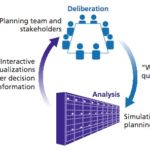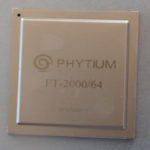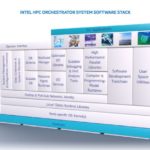“This talk will discuss various system performance issues, and the methodologies, tools, and processes used to solve them. The focus is on single systems (any operating system), including single cloud instances, and quickly locating performance issues or exonerating the system. Many methodologies will be discussed, along with recommendations for their implementation, which may be as documented checklists of tools, or custom dashboards of supporting metrics. In general, you will learn to think differently about your systems, and how to ask better questions.”
Archives for August 2016
ACM Announces George Michael Memorial HPC Fellowships
Today ACM announced the recipients of the 2016 ACM/IEEE George Michael Memorial HPC Fellowships. The fellowship honors exceptional PhD students throughout the world whose research focus is on high performance computing applications, networking, storage or large-scale data analytics using the most powerful computers that are currently available.
Overview of the MVAPICH Project and Future Roadmap
In this video from the 4th Annual MVAPICH User Group, DK Panda from Ohio State University presents: Overview of the MVAPICH Project and Future Roadmap. “This talk will provide an overview of the MVAPICH project (past, present and future). Future roadmap and features for upcoming releases of the MVAPICH2 software family (including MVAPICH2-X, MVAPICH2-GDR, MVAPICH2-Virt, MVAPICH2-EA and MVAPICH2-MIC) will be presented. Current status and future plans for OSU INAM, OEMT and OMB will also be presented.”
Speakers Announced for HPC User Forum in Beijing
IDC has announced the featured speakers for the next international HPC User Forum. The event will take place Sept. 22 in Beijing, China.
Report: Using HPC for Public Policy Analysis & Water Resource Management
Researchers from the RAND Corporation and LLNL have joined forces to combine HPC with innovative public policy analysis to improve planning for particularly complex issues such as water resource management. By using supercomputer simulations, the participants were able to customize and speed up the analysis guiding the deliberations of decision makers. “In the latest workshop we performed and evaluated about 60,000 simulations over lunch. What would have taken about 14 days of continuous computations in 2012 was completed in 45 mins — about 500 times faster,” said Ed Balkovich, senior information scientist at the RAND Corporation, a nonprofit research organization.
Phytium from China Unveils 64-core ARM HPC Processor
This week at the Hot Chips conference, Phytium Technology from China unveiled a 64-core CPU and a related prototype computer server. “Phytium says the new CPU chip, with 64-bit arithmetic compatible with ARMv8 instructions, is able to perform 512 GFLOPS at base frequency of 2.0 GHz and on 100 watts of power dissipation.”
Nor-Tech to Offer Clusters with Intel HPC Orchestrator
Today Nor-Tech announced the imminent rollout of clusters integrated with the Intel HPC Orchestrator. HPC Orchestrator is a licensed, value-add version of OpenHPC that will be supported by Intel and Nor-Tech.
Machine Learning and the Intel Xeon Phi Processor
“With up to 72 processing cores, the Intel Xeon Phi processor x200 can accelerate applications tremendously. Each core contains two Advanced Vector Extensions, which speeds up the floating point performance. This is important for machine learning applications which in many cases use the Fused Multiply-Add (FMA) instruction.”
Spack Tool Eases Transition to Next-Gen Scientific Simulations
“Spack is like an app store for HPC,” says Todd Gamblin, its creator and lead developer. “It’s a bit more complicated than that, but it simplifies life for users in a similar way. Spack allows users to easily find the packages they want, it automates the installation process, and it allows contributors to easily share their own build recipes with others.” Gamblin is a computer scientist in LLNL’s Center for Applied Scientific Computing and works with the Development Environment Group at Livermore Computing.
Video: Exploring I/O Challenges at Exascale
“Clear trends in the past and current petascale systems (i.e., Jaguar and Titan) and the new generation of systems that will transition us toward exascale (i.e., Aurora and Summit) outline how concurrency and peak performance are growing dramatically, however, I/O bandwidth remains stagnant. In this talk, we explore challenges when dealing with I/O-ignorant high performance computing systems and opportunities for integrating I/O awareness in these systems.”












